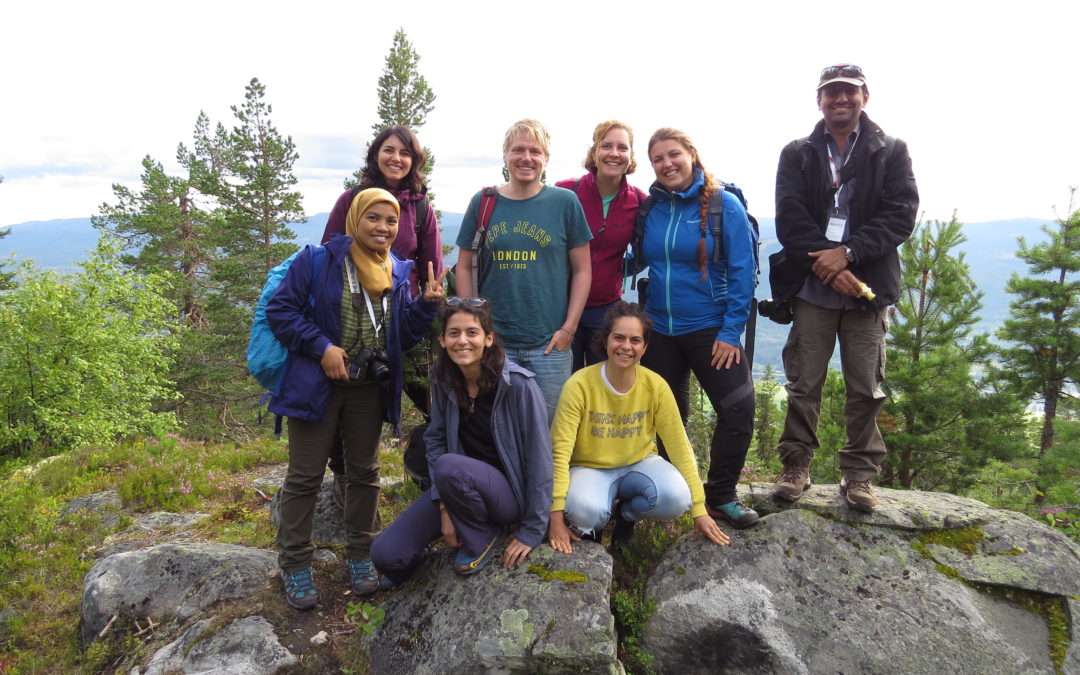Primary theme: your first theme or choice.
Secondary theme: If you are interested in more than one theme, the secondary theme should be the one or less relevance to your PhD research.
Theme 1: Movement and Population Ecology
Theme leaders: Francesca Cagnacci, Øyvind Steifetten and Erlend Nilsen
Ecology is fundamentally spatial, as all processes, from individual survival to inter-individual competition, to population distribution, depend on the ecological context. The availability of outstanding tools to record and quantify both individual animal movement and ecosystem characteristics has spurred lots of interest in this domain. This Thematic group aims at training PhD students in the advanced technologies and methodologies that constitute the state-of-the-art of such research domain, while also focusing on the main applied questions that can be addressed by the study of animal movement and landscapes. Hence, we aim at translating general approaches of the ecological theory into problem-solving tools for current and pressing issues in applied ecology, such as, for example, connectivity, fragmentation, climate change impact, and effect of anthropogenic resources on wildlife communities.
Understanding how wildlife populations develop and function is becoming ever more important in a world where populations are increasingly subjected to new challenges. This especially concerns applied sciences such as wildlife management and conservation biology. The proposed group will be a sub-group of the “Movement and spatial ecology” group, but will focus more on how basic demographic and environmental factors affect the development, dynamics and viability of populations. However, the two groups are not completely separated, neither formally nor scientifically; topics covered in the former group are likely to also be relevant to members of this group. Teaching will have both a theoretical and a practical (e.g. methods/tools to estimate population density and viability) approach. Most importantly, the group will act as a forum where individual students can present their own research, and share with others any questions, problems or possible solutions related to different aspects of population ecology and dynamics.
Theme 2: Ecosystem Services
Theme leaders: Harry Andreassen and Anna Gudrun Thorhallsdottir
Theme 3: Freshwater Ecology
Theme leaders: Jon Museth and John Piccolo
Theme 4:Understanding and managing biodiversity conflicts
Theme leaders: Steve Redpath and Henrik Andrén
Conflicts over biodiversity are widespread across the world and are often damaging to the people and the species involved. To address these issues we need strong ecology, but we also have to be able to work with other disciplines, stakeholders and policy makers. Moreover, we are forced to reflect on our own values and our role. This theme will help students appreciate the complexity and develop an awareness of the skills required to manage these challenging problems and to support them in making their ecology more effective.
Theme 5: Climate Change Ecology
Theme leaders: Toke Thomas Høye, Jane Jepsen and Rolf Anker Ims
Understanding how species and ecosystem responds to environmental variation and change is a key challenge for ecology. Due to the severe changes in global climate predicted for the 21st century, there is an urgent need for knowledge of the ecological effects of climate change. Such knowledge will help develop sound strategies for natural resource management. This IRSAE theme focusses on the study of effects of climate change from the individual to the ecosystem level across spatial and temporal scales. Such studies may be based on long-term observations, experiments, modelling and can be integrated with other drivers of ecological change like biotic interactions or land use change.



